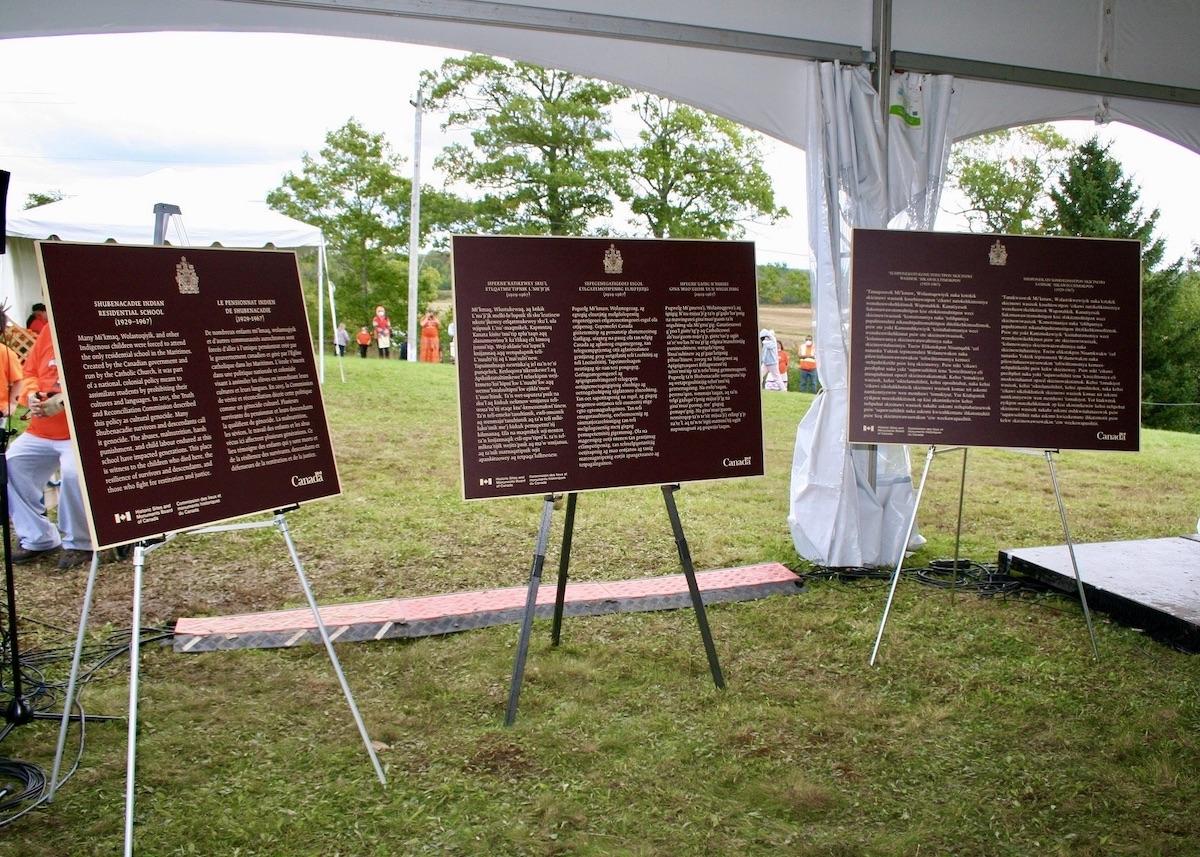
Multilingual commemorative plaques at the former Shubenacadie Indian Residential School — designated a national historic site in July 2020 — in Nova Scotia/Parks Canada
The Canadian government’s spring budget proposes $25 million ($20 million USD) over three years to Parks Canada to commemorate and memorialize former residential schools sites.
“The country was shaken following the multiple discoveries of unmarked burial sites at former residential schools over the past year, which are reminders of the shameful legacy of residential schools and colonialism,” federal Finance Minister and Deputy Prime Minister Chrystia Freeland wrote in Budget 2022.
“The announcements of these mass burial sites have brought up painful memories, and triggered suppressed traumas within Indigenous communities. Survivors and their families have experienced an increased need for emotional and cultural support. The federal government will continue to be there to support communities as they respond to and heal from intergenerational trauma and the ongoing impact of residential schools. Addressing the legacy of residential schools will take time, and Canada will undertake this work in partnership with Indigenous people and communities.”
From the 1870s until 1996, the Canadian government in partnership with Catholic and other churches, forced more than 150,000 First Nation, Métis and Inuit children into boarding schools to assimilate them. Many children were physically, sexually and spiritually abused and died from disease, malnutrition and neglect. More than 1,800 confirmed or suspected unmarked graves have been found at former residential school sites in the last year.
With this proposed new federal funding, slated to start in 2022-23, Parks Canada will work with Indigenous communities, Crown-Indigenous Relations and Northern Affairs Canada, and other federal partners, but says “any next steps will depend on the Indigenous communities.” It hopes to share more stories of Indigenous history with Canadians and the world.

Children bike down a gravel trail in Rouge National Urban Park/Parks Canada, Robyn Simard
To improve access and promote tourism and recreational activities around Rouge National Urban Park, the budget unveiled last week also proposes $2 million ($1.6 million USD) over two years, starting in 2022-23, to the Parks Canada Agency to contribute to building new and connecting trails. Rouge, in Greater Toronto, is in consultations to decide where the money will be spent.
Finally, to maintain and enhance Canada’s trail network, the budget proposes $55 million ($43.5 million USD) over five years, starting in 2022-23, to the Parks Canada Agency for the Trans Canada Trail.
The trail is a national initiative that began in 1992 with the goal of developing a network of recreational trails across Canada. At 27,000 kilometres (16,800 miles), the longest trail network in the world now connects Canadians to nature from coast-to-coast-to-coast.
The trail crosses Fundy National Park, Rideau Canal National Historic Site, Lake Superior National Marine Conservation Area, Pukaskwa National Park and Banff National Park. It’s also within one kilometer (0.6 miles) of 41 more national parks, historic sites and marine conservation areas managed by Parks Canada.
Funds for the Trans Canada Trail will be managed by Parks Canada but consultations will be needed with the provinces and municipalities.





